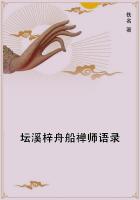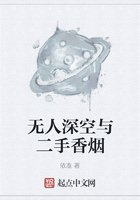"'That is the very reason, my dear brother,' replied Joseph, 'why I would not allow these shops to be where they are. The temptation to lavish money to little purpose is too strong; and women have not philosophy enough to resist having things they like, when they can be obtained easily, though they may not be wanted.'
"'Custom,' answered the King--"'True,' exclaimed the Queen, interrupting him; custom, my dear brother, obliges us to tolerate in France many things which you, in Austria, have. long since abolished; but the French are not to be: treated like the Germans. A Frenchman is a slave to habit. His very caprice in the change of fashion proceeds more from habit than genius or invention.
His very restlessness of character is systematic; and old customs and national habits in a nation virtually spirituelle must not be trifled with. The tree torn up by the roots dies for want of nourishment; but, on the contrary, when lopped carefully only of its branches the pruning makes it more valuable to the cultivator and more pleasing to the beholder. So it is with national prejudices, which are often but the excrescences of national virtues. Root them out and you root out virtue and all. They must only be: pruned and turned to profit. A Frenchman is more easily killed than subdued. Even his follies generally spring from a high sense of national dignity and honour, which foreigners cannot but respect.'
"The Emperor Joseph while in France mixed in all sorts of society, to gain information with respect, to the popular feeling towards his sister, and instruction as to the manners and modes of life and thinking of the French. To this end he would often associate with the lowest of the common people, and generally gave them a louis for their loss of time in attending to him.
"One day, when he was walking with the young Princesse Elizabeth and myself in the public gardens at Versailles and in deep conversation with us, two or three of these louis ladies came up to my side and, not knowing who I was, whispered, 'There's no use in paying such attention to the stranger: after all, when he has got what he wants, he'll only give you a louis apiece and then send you about your business.'"第一章SECTION X.
"I remember an old lady who could not bear to be told of deaths. 'Psha!
Pshaw!' she would exclaim. 'Bring me no tales of funerals! Talk of births and of those who are likely to be blest with them! These are the joys which gladden old hearts and fill youthful ones with ecstasy! It is our own reproduction in children which makes us quit the world happy and contented; because then we only retire to make room for another race, bringing with them all those faculties which are in us decayed; and capable, which we ourselves have ceased to be, of taking our parts and figuring on the stage of life so long as it may please the Supreme Manager to busy them in earthly scenes! Then talk no more to me of weeds and mourning, but show me christenings and all those who give employ to the baptismal font!'
"Such also was the exulting feeling of Marie Antoinette when she no longer doubted of her wished-for pregnancy. The idea of becoming a mother filled her soul with an exuberant delight, which made the very pavement on which she trod vibrate with the words, 'I shall be a mother!
I shall be a mother!' She was so overjoyed that she not only made it public throughout France but despatches were sent off to all her royal relatives. And was not her rapture natural? so long as she had waited for the result of every youthful union, and so coarsely as she had been reproached with her misfortune! Now came her triumph. She could now prove to the world, like all the descendants of the house of Austria, that there was no defect with her. The satirists and the malevolent were silenced. Louis XVI., from the cold, insensible bridegroom, became the infatuated admirer of his long-neglected wife. The enthusiasm with which the event was hailed by all France atoned for the partial insults she had received before it. The splendid fetes, balls, and entertainments, indiscriminately lavished by all ranks throughout the kingdom on this occasion, augmented those of the Queen and the Court to a pitch of magnificence surpassing the most luxurious and voluptuous times of the great and brilliant Louis XIV. Entertainments were given even to the domestics of every description belonging to the royal establishments.
Indeed, so general was the joy that, among those who could do no more, there could scarcely be found a father or mother in France who, before they took their wine, did not first offer up a prayer for the prosperous pregnancy of their beloved Queen.
"And yet, though the situation of Marie Antoinette was now become the theme of a whole nation's exultation, she herself, the owner of the precious burthen, selected by Heaven as its special depositary, was the only one censured for expressing all her happiness!
"Those models of decorum, the virtuous Princesses, her aunts, deemed it highly indelicate in Her Majesty to have given public marks of her satisfaction to those deputed to compliment her on her prosperous situation. To avow the joy she felt was in their eyes indecent and unqueenly. Where was the shrinking bashfulness of that one of these Princesses who had herself been so clamorous to Louis XV. against her husband, the Duke of Modena, for not having consummated her own marriage?















